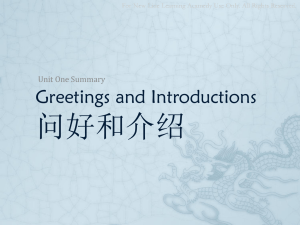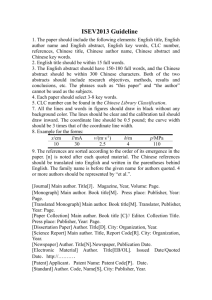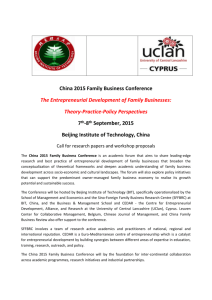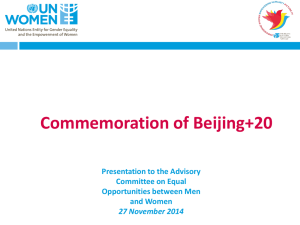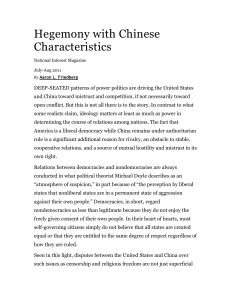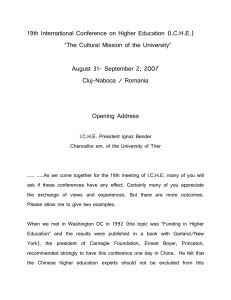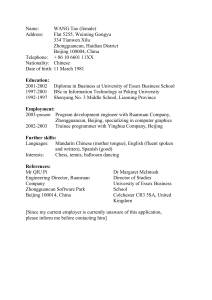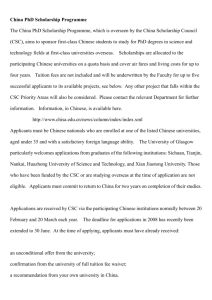Puccini`s Turandot in Beijing
advertisement
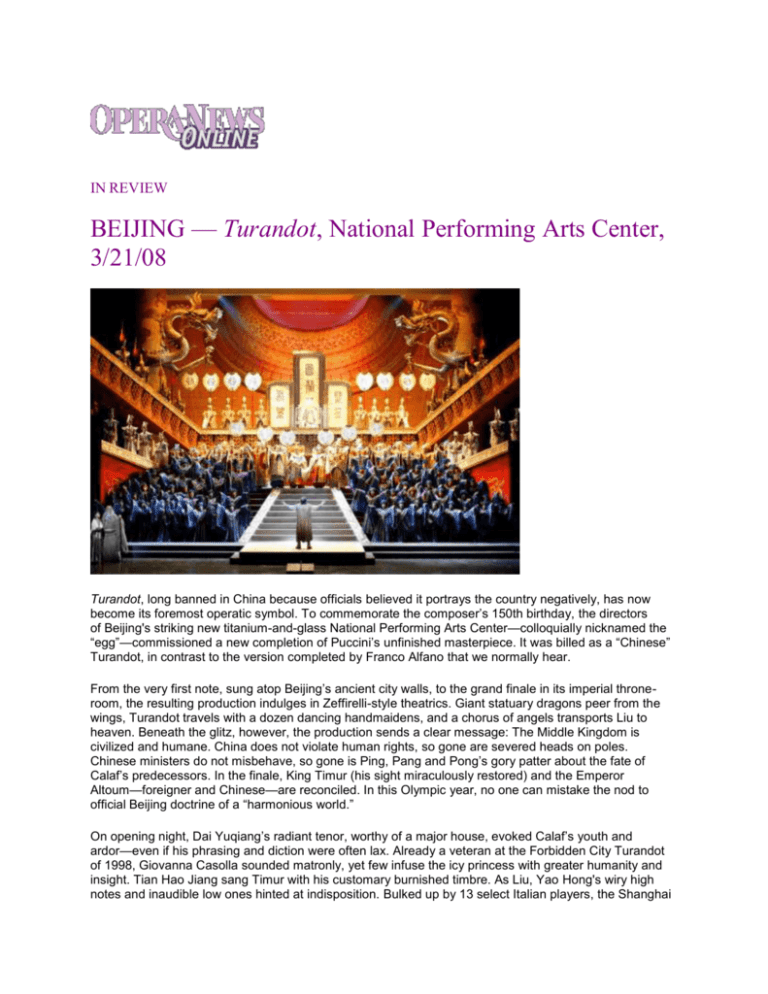
IN REVIEW BEIJING — Turandot, National Performing Arts Center, 3/21/08 Turandot, long banned in China because officials believed it portrays the country negatively, has now become its foremost operatic symbol. To commemorate the composer’s 150th birthday, the directors of Beijing's striking new titanium-and-glass National Performing Arts Center—colloquially nicknamed the “egg”—commissioned a new completion of Puccini’s unfinished masterpiece. It was billed as a “Chinese” Turandot, in contrast to the version completed by Franco Alfano that we normally hear. From the very first note, sung atop Beijing’s ancient city walls, to the grand finale in its imperial throneroom, the resulting production indulges in Zeffirelli-style theatrics. Giant statuary dragons peer from the wings, Turandot travels with a dozen dancing handmaidens, and a chorus of angels transports Liu to heaven. Beneath the glitz, however, the production sends a clear message: The Middle Kingdom is civilized and humane. China does not violate human rights, so gone are severed heads on poles. Chinese ministers do not misbehave, so gone is Ping, Pang and Pong’s gory patter about the fate of Calaf’s predecessors. In the finale, King Timur (his sight miraculously restored) and the Emperor Altoum—foreigner and Chinese—are reconciled. In this Olympic year, no one can mistake the nod to official Beijing doctrine of a “harmonious world.” On opening night, Dai Yuqiang’s radiant tenor, worthy of a major house, evoked Calaf’s youth and ardor—even if his phrasing and diction were often lax. Already a veteran at the Forbidden City Turandot of 1998, Giovanna Casolla sounded matronly, yet few infuse the icy princess with greater humanity and insight. Tian Hao Jiang sang Timur with his customary burnished timbre. As Liu, Yao Hong's wiry high notes and inaudible low ones hinted at indisposition. Bulked up by 13 select Italian players, the Shanghai Opera House Orchestra—China’s best pit band—sounded strong if unsubtle under Verona’s Chineseborn Music Director, Lu Jia. The real import of the evening should have been the new music. Hao Weiya, a young Chinese composer primarily known for arranging traveling multi-media reviews, was given the task of orchestrating and completing the last 20 minutes of the opera, for which Puccini’s sketches are famously incomplete. Hao's score—initially written in six weeks, then revised a half dozen times with input from senior figures—is cautious yet uneven. He employed few exotic instruments, incorporated only Chinese tunes Puccini himself favored (notably “Jasmine Flower”), and, in contrast to modernist Luciano Berio’s recent version, eschewed post-romantic harmonies. To enhance dramatic plausibility, he sensibly extended Turandot’s aria and the kiss—as did Alfano, before Arturo Toscanini took an ax to his work. Yet Hao’s workmanlike effort only intermittently recalls Puccini. His orchestration rarely captures Turandot’s dense interplay of motives and timbres, and the stressfully high tessitura imposed on singers is unidiomatic. The sections Hua composed anew project no coherent style, mixing generic romanticism, faux Strauss, some Hollywood, and even a blatant reference to the Olympic theme. He does not track the composer’s sketches as closely as his predecessors—and when the score returns to them, the greater weight and coherence of the original become painfully clear. A rewrite is reportedly under consideration. Despite its weaknesses, this Turandot demonstrated that Beijing is now the home of world-class, innovative opera, performed and produced largely by local forces. Just a generation after the Cultural Revolution eviscerated Western music in China, that is no small achievement. ANDREW MORAVCSIK Yu Qiang Dai as Calaf in Beijing's Turandot Zhang Feng, Zheng Yao and Wang Fei as Ping, Pang and Pong http://www.metoperafamily.org/operanews/review/review.aspx?id=2286
